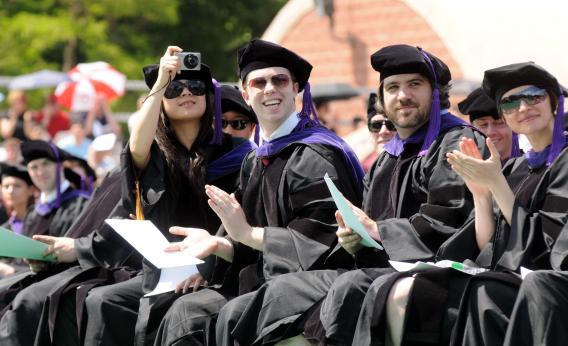U.S. law school deans could do with a little Econ 101. Tuition at the likes of Yale and Stanford keeps rising faster than inflation, despite a dwindling supply of aspiring lawyers. And job prospects for graduates are getting worse. For all their sophisticated skills, legal educators still haven’t mastered the law of supply and demand.
The young often weather periods of high unemployment by flocking to graduate school. After the dot-com bubble burst in 2000, for instance, the number of law school applicants soared some 40 percent, reaching a peak of almost 99,000 in 2004. But in the recent downturn, applications to many professional schools have been about as scarce as jobs.
While MBA and other graduate programs show signs of renewed popularity, law schools are still suffering. Applicant numbers have tumbled to about 67,000 for the fall 2012 class, the lowest since 1987. And there are dozens more law schools today than 25 years ago.
Part of the problem is the high price of legal education. Tuition has quintupled at private law schools since 1985, averaging nearly $40,000 last year, according to the American Bar Association. Including living expenses, it costs over $230,000 for the three years required to earn a JD from Chicago’s Northwestern, the school’s website says.
That kind of bill leads to highly indebted young lawyers. Recent American University grads owe an average of about $151,000, and few are likely to be in position to pay it off soon. The national median salary for 2010 law graduates was $63,000, down 13 percent from the year before. Only about seven out of 10 have even secured jobs that require passing a bar exam.
The institutions are victims of their own success. They began attracting hoards of students in the mid-1990s when firms were splashing out $160,000 annually to first year associates. All the new enrollees paid for more professors, higher salaries and spiffier classrooms.
But these higher learning programs are now stuck with unsupportable expenses. Some may close, while others will almost certainly have to cut costs and woo students with lower fees. It isn’t rocket science, but law schools seem quicker to understand torts than simple economics.
Read more at Reuters Breakingviews.
